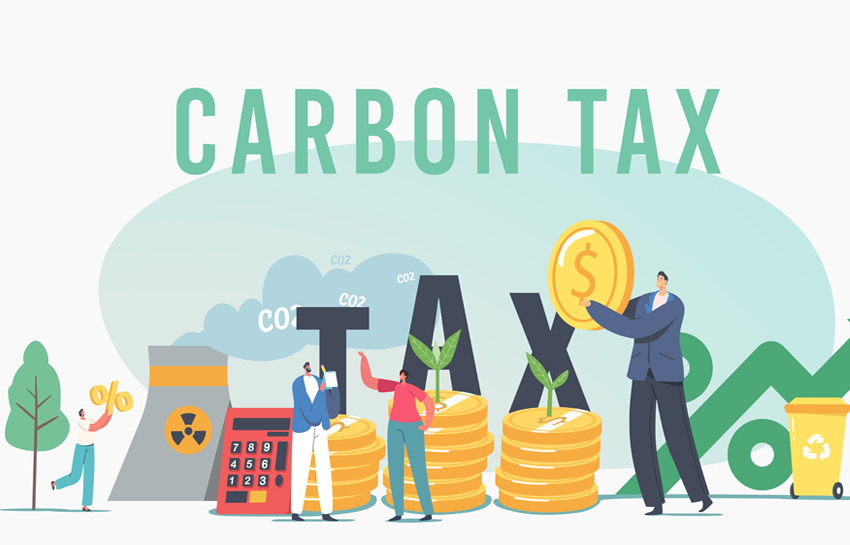
5 Key Strategies for Avoiding Carbon Taxes
Global warming is driving extreme climate events across the planet with increasing regularity, scope, and intensity. Hoping to mitigate the effects of climate change, governments around the world are developing carbon taxes to help achieve ambitious climate targets and meet sustainability goals. Carbon taxes are the prevailing solution, with 40 countries and over 20 provinces, states, and cities already using carbon pricing mechanisms. In the U.S., Congress is currently considering five separate carbon pricing proposals.
Read on to learn more about why carbon taxes are increasingly important for addressing global warming and five key strategies for avoiding carbon taxes, including using digitization tools and solutions.
Why Carbon Taxes Are Important
Carbon taxes are important because they stimulate market innovation and clean technologies, which generate new, low-carbon drivers of economic growth. Carbon taxes come in two broad categories: an emissions tax and a tax on carbon-intensive goods and services. A tax on goods and services includes carbon taxes on consumer items like airline travel and gasoline at the pump. Emissions carbon taxes relate directly to the amount of greenhouse gas (GHG) emitted by a producer.
When governments set a price that emitters must pay for every ton of GHG they emit, businesses and consumers take action, reducing their emissions and hence avoiding carbon taxes.
5 Key Strategies for Avoiding Carbon Taxes
Carbon taxes are playing an increasingly significant role in achieving carbon neutrality by 2050. Directly impacting operations, many organizations are transforming their operating models and decreasing their exposure to carbon taxes by reducing their carbon footprint.
Also, taking advantage of carbon incentives helps forward-thinking businesses become future-ready. For example, investing in new digitization solutions increases operational efficiencies, helps avoid carbon taxes, and aligns organizations with society’s increased environmental awareness.
Here are five key strategies for avoiding carbon taxes.
1. Approach Carbon Taxes Proactively
Organizations gain huge social benefits by embracing emerging opportunities aligned with societal needs. Proactively reducing emissions helps boost company reputations, influences shareholder relationships, and pulls in new customers.
2. Anticipate and Integrate Carbon Taxes
Vertically integrating supply chains is another highly recommended strategy. Consider the impact of carbon taxes on everything within the life cycle of a product, including resourcing, supplying, processing, production, sales, and logistics.
3. Digitize Production Processes and Workstreams
Harness the power of artificial intelligence and the Internet of Things (IoT) for increasing operational efficiencies, performing predictive maintenance routines, and ultimately reducing taxable emissions from normal production operations.
4. Adopt Leak Detection and Repair Tools
Adopt innovative intrinsically safe digitization technologies to detect, monitor, and repair leaking and fugitive carbon and methane emissions for a cost-effective strategy to avoid carbon taxes.
5. Switch to Renewable Energy Sources
Switching to on-site, renewable power generation not only reduces carbon taxes by reducing emissions, but it also reduces energy costs. Some oil and gas companies are replacing generators running on diesel fuel with solar photovoltaic (PV) systems, which connect onshore and nearshore rigs to environment-friendly PV-powered electricity grids.
Aegex Technologies Offers Digital Solutions
Aegex Technologies revolutionizes organizational efficiency. Communicating, collaborating, and decision-making are more convenient with Aegex digitization tools.
Purpose-built for Zone 1 locations, Aegex tools help reduce downtime, identify and reduce GHG emissions, avoid carbon taxes, and enhance environmental safety for work sites, personnel, and society in general.
Leading-Edge Strategies for Future-Ready Organizations
Offering a strong incentive to find cleaner solutions, carbon taxes are driving future-ready organizations to embrace new opportunities and adopt emerging digital technologies. If your organization wants to reduce its taxable carbon footprint, Aegex digitization tools offer a full array of enterprise-class digital solutions. Contact us for more information on our leading-edge strategies for avoiding carbon taxes.
